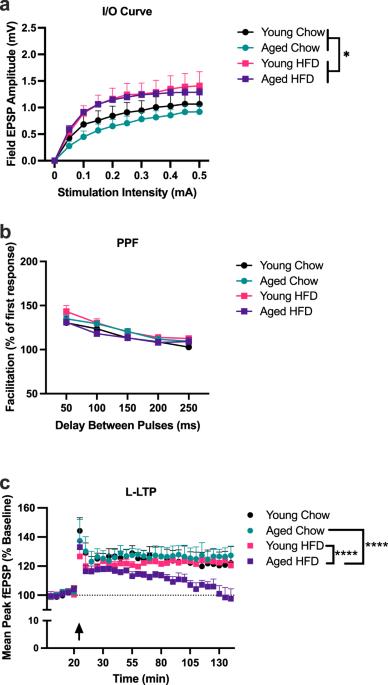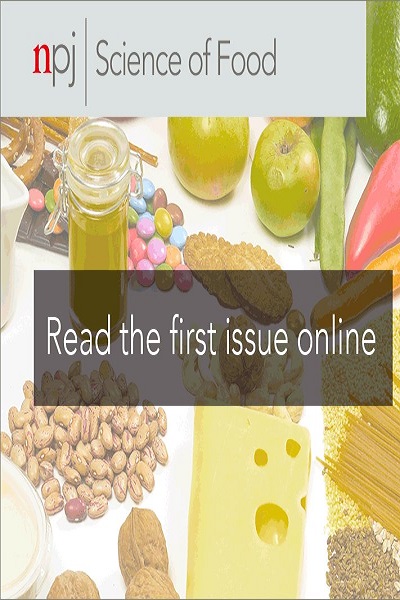短期高脂饮食会通过 IL-1 信号损害老年海马的突触可塑性
IF 6.3
1区 农林科学
Q1 FOOD SCIENCE & TECHNOLOGY
引用次数: 0
摘要
与以往相比,越来越多的美国人在饮食中摄入更多的饱和脂肪和精制糖。这些趋势可能会给老年人群带来严重后果,因为食用高脂肪饮食(HFD)会诱发神经炎症,已被证明会加速和加剧记忆力衰退。我们以前曾证实,短期摄入高脂饮食不会引起与肥胖相关的并发症,但却会对老年大鼠的海马依赖性记忆造成严重损害。这些损伤是由促炎细胞因子(主要是白细胞介素-1β(IL-1β))的增加引起的。在这里,我们探讨了短期摄入高氟酸钾盐在多大程度上破坏了海马突触的可塑性(以长期电位(LTP)来衡量)。我们证明了:(1)HFD 破坏了老年大鼠海马的晚期 LTP,但没有破坏年轻成年大鼠的 LTP;(2)HFD 没有破坏早期 LTP;(3)阻断 IL-1 受体可以挽救老年 HFD 大鼠的 L-LTP。这些研究结果表明,摄入 HFD 后,老年大鼠的海马记忆损伤是通过突触可塑性的恶化发生的,而 IL-1β 是这种恶化的关键驱动因素。本文章由计算机程序翻译,如有差异,请以英文原文为准。

Short-term high-fat diet consumption impairs synaptic plasticity in the aged hippocampus via IL-1 signaling
More Americans are consuming diets higher in saturated fats and refined sugars than ever before. These trends could have serious consequences for the older population because high-fat diet (HFD) consumption, known to induce neuroinflammation, has been shown to accelerate and aggravate memory declines. We have previously demonstrated that short-term HFD consumption, which does not evoke obesity-related comorbidities, produced profound impairments to hippocampal-dependent memory in aged rats. These impairments were precipitated by increases in proinflammatory cytokines, primarily interleukin-1 beta (IL-1β). Here, we explored the extent to which short-term HFD consumption disrupts hippocampal synaptic plasticity, as measured by long-term potentiation (LTP), in young adult and aged rats. We demonstrated that (1) HFD disrupted late-phase LTP in the hippocampus of aged, but not young adult rats, (2) HFD did not disrupt early-phase LTP, and (3) blockade of the IL-1 receptor rescued L-LTP in aged HFD-fed rats. These findings suggest that hippocampal memory impairments in aged rats following HFD consumption occur through the deterioration of synaptic plasticity and that IL-1β is a critical driver of that deterioration.
求助全文
通过发布文献求助,成功后即可免费获取论文全文。
去求助
来源期刊

NPJ Science of Food
FOOD SCIENCE & TECHNOLOGY-
CiteScore
7.50
自引率
1.60%
发文量
53
期刊介绍:
npj Science of Food is an online-only and open access journal publishes high-quality, high-impact papers related to food safety, security, integrated production, processing and packaging, the changes and interactions of food components, and the influence on health and wellness properties of food. The journal will support fundamental studies that advance the science of food beyond the classic focus on processing, thereby addressing basic inquiries around food from the public and industry. It will also support research that might result in innovation of technologies and products that are public-friendly while promoting the United Nations sustainable development goals.
 求助内容:
求助内容: 应助结果提醒方式:
应助结果提醒方式:


